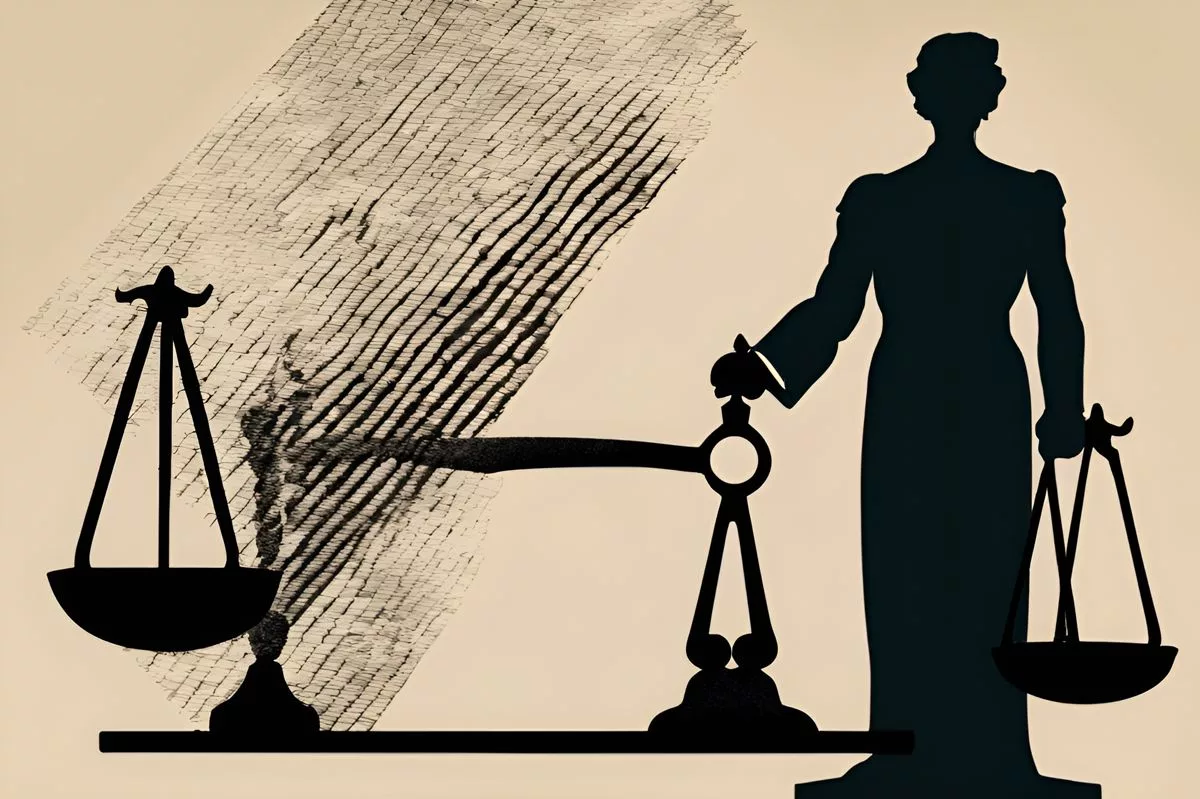John Hlophe is a controversial figure in South Africa, known for his troubled history as a judge. He tried to sway decisions in favor of former President Jacob Zuma during corruption cases, raising serious questions about fairness in the justice system. Recently, a court barred him from participating in the Judicial Service Commission, which oversees judges, highlighting concerns about his influence on the judiciary. As South Africa navigates its democratic journey, Hlophe’s story serves as a reminder of the importance of integrity and accountability in law. The unfolding drama around him emphasizes that trust in the justice system is crucial for the nation’s future.
What is the controversy surrounding John Hlophe in South Africa?
John Hlophe’s controversy stems from his legal battles and alleged misconduct while serving as a judge. Recently barred from the Judicial Service Commission, Hlophe’s attempts to influence judicial decisions for Jacob Zuma during corruption cases raised concerns about judicial integrity, prompting calls for disqualification from the JSC.
In the complex landscape of South African politics and judiciary, few names evoke as much debate as John Hlophe. As the deputy president of the MK Party (MKP), Hlophe’s recent legal entanglements with the Judicial Service Commission (JSC) highlight the ongoing struggle for judicial integrity. This struggle is particularly poignant in a nation still emerging from the long shadow of apartheid.
Legal Turmoil and Controversy
A recent ruling by the Western Cape High Court temporarily barred Hlophe from participating in JSC activities. This decision, reported by Cape {town} Etc, awaits the National Assembly’s review of his appointment. The Democratic Alliance (DA) and NGOs Freedom Under Law and Corruption Watch initiated this petition, aiming to disqualify Hlophe from the JSC. The JSC plays a crucial role in interviewing judicial candidates and overseeing judges’ conduct.
A full panel of judges from the Gauteng High Court heard this highly contentious case. The DA argued that Hlophe, the first judge to face removal from the bench in post-apartheid South Africa, should not influence the judiciary’s future. The controversy centers on Hlophe’s 2008 attempt to sway two Constitutional Court judges in favor of Jacob Zuma during a corruption case involving arms deals.
Karabo Khakhau, the DA spokesperson, praised the court’s decision as a significant win for both the party and judicial integrity. She stated, “This decision reinforces our commitment to uphold the highest standards within our legal system. An impeached judge, guilty of serious misconduct, should not be part of the JSC, a body charged with selecting judges and ensuring judicial integrity.”
Implications for Judicial Independence
Khakhau stressed that the ruling is vital to preserving the judiciary’s independence and credibility. Allowing Hlophe, who faced impeachment after prolonged legal battles, to influence future judicial appointments could severely undermine public confidence in the legal system. Such a scenario would jeopardize the principles essential to South Africa’s democracy, a democracy still in its youth compared to many other nations.
Hlophe’s tumultuous journey through the judiciary and political spheres underscores the complex interplay between law, politics, and public trust. His removal from the bench was not a simple administrative decision but rather the apex of a dramatic and highly publicized legal saga. The JSC inquiry concluded that Hlophe attempted to manipulate judicial proceedings to favor Zuma, a leader whose tenure was fraught with controversy and corruption allegations.
Remarkably, Hlophe ventured into politics with stunning speed following his judicial ousting. Just four months after his removal, he was sworn in as a Member of Parliament for the MKP, the same assembly that had dismissed him. By July, he secured a position within the JSC, a move that drew significant public and political criticism.
A Story of Power and Redemption
This narrative evokes historical and artistic movements that grapple with themes of power, corruption, and redemption. One might draw parallels with the Baroque period in art, known for its dramatic intensity and emotional depth. Similarly, Hlophe’s story is marked by conflict, intrigue, and a quest for redemption.
The DA’s argument against Hlophe’s involvement in the JSC rests on a fundamental principle: the judiciary’s role as a pillar of democracy must remain untainted by individuals with a history of misconduct. This principle resonates with historical efforts to define the boundaries between power and morality, reminiscent of Enlightenment thinkers who championed the separation of powers and the rule of law.
Reflecting on Hlophe’s case, it is impossible to ignore the broader implications for South Africa’s legal and political landscape. The country’s transition from apartheid to a democratic society has been marked by efforts to build institutions that reflect fairness, transparency, and accountability. The judiciary, as a guardian of these values, must exemplify the highest standards of conduct and integrity.
Upholding Democratic Ideals
The Western Cape High Court’s ruling reinforces South Africa’s commitment to these democratic ideals. By temporarily barring Hlophe from the JSC, the court has underscored the importance of maintaining public trust in the judiciary. This decision is not just a legal mandate but a symbolic gesture affirming that the principles of justice and integrity remain paramount.
Hlophe’s anticipated appeal against this latest court decision will undoubtedly add another chapter to this ongoing saga. The outcome of this appeal will be closely monitored, as it will either reinforce the court’s stance or challenge the boundaries of judicial accountability.
Beyond the specifics of Hlophe’s case, this narrative invites a broader reflection on the nature of power and its checks and balances within a democracy. It serves as a reminder that the journey towards a just society is continuous, requiring constant vigilance and a steadfast commitment to principles over personalities.
John Hlophe’s story transcends a mere legal battle; it encapsulates the larger struggle to uphold the ideals upon which South Africa’s democracy was built. As the nation watches this drama unfold, the underlying message remains clear: the integrity of the judiciary is non-negotiable, and those who serve must exemplify the highest ethical standards. In safeguarding these principles, South Africa continues to forge its path toward a more just and equitable society.
“`markdown
What is the controversy surrounding John Hlophe in South Africa?
John Hlophe’s controversy stems from his attempts to influence judicial decisions in favor of former President Jacob Zuma during corruption cases, raising significant concerns about judicial integrity. Recently, he was barred from participating in the Judicial Service Commission (JSC), highlighting fears about his influence over the judiciary.
Why was John Hlophe barred from the Judicial Service Commission?
A recent ruling by the Western Cape High Court temporarily barred Hlophe from JSC activities following a petition initiated by the Democratic Alliance (DA) and NGOs like Freedom Under Law and Corruption Watch. The ruling aims to prevent him from influencing judicial appointments and maintaining the integrity of the judiciary.
What does the Judicial Service Commission (JSC) do?
The Judicial Service Commission is responsible for interviewing judicial candidates, overseeing judges’ conduct, and making recommendations regarding judicial appointments. Its role is crucial in ensuring that the judiciary remains independent and upholds the principles of justice and integrity.
How did John Hlophe’s past actions impact the judiciary in South Africa?
Hlophe’s attempt to sway two Constitutional Court judges in favor of Jacob Zuma during a corruption case has raised questions about his suitability to influence future judicial appointments. This incident is viewed as a significant breach of judicial conduct and has led to calls for his removal from any role within the JSC.
What are the implications of the court ruling against John Hlophe?
The court ruling is seen as a vital step in preserving judicial independence and public confidence in the legal system. Allowing an impeached judge like Hlophe to influence judicial appointments could undermine the credibility of the judiciary and threaten South Africa’s democratic ideals.
What can we expect from John Hlophe’s anticipated appeal?
Hlophe is expected to appeal the recent court decision that barred him from the JSC. The outcome of this appeal will be closely monitored, as it could either reinforce the court’s stance on maintaining judicial accountability or challenge the boundaries of the judiciary’s integrity in South Africa.
“`












